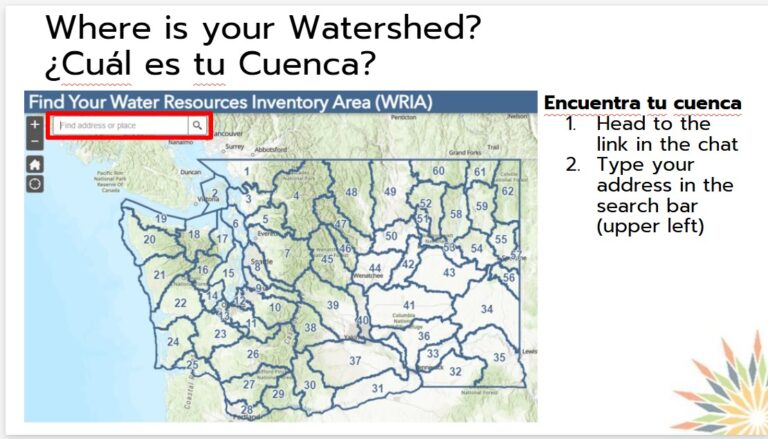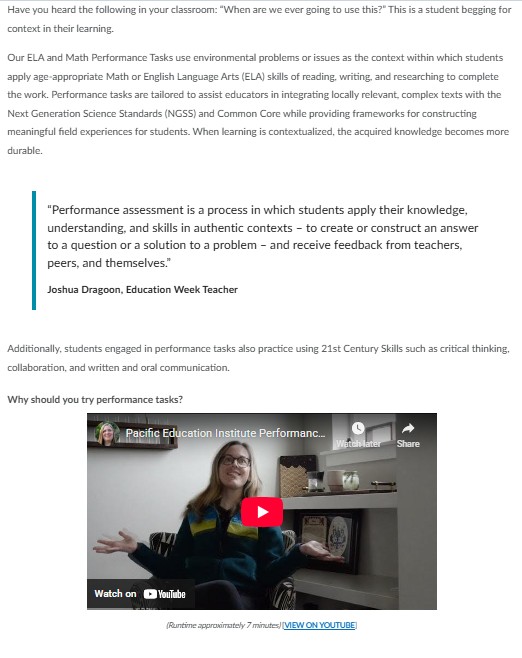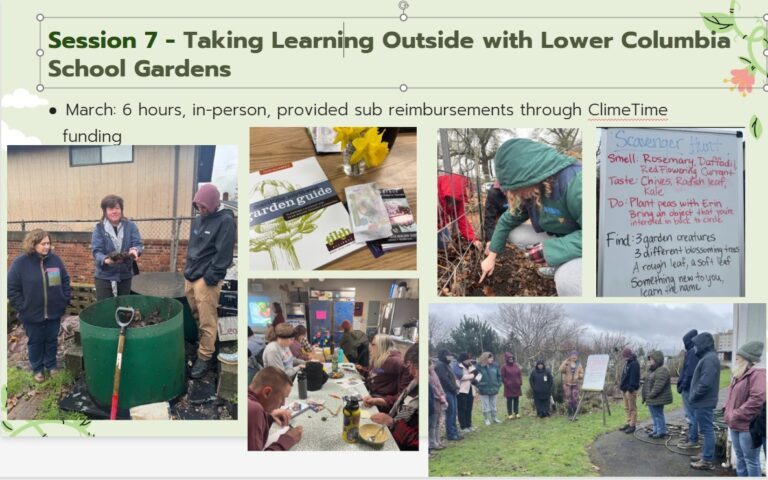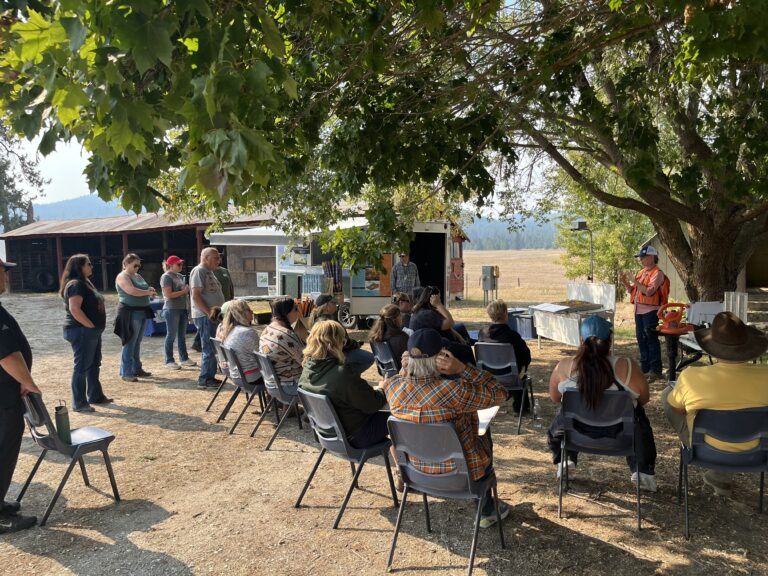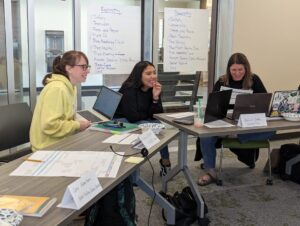
Since Time Immemorial tribal sovereignty curriculum (STI) has been mandated in Washington State schools since 2015, but many Career and Technical Education (CTE) directors still feel intimidated about where to begin the integration process, especially if they don’t already have relationships with local tribes.
In October, the Office of the Superintendent of Public Instruction’s (OSPI) Tribal Engagement Specialist Shandy Abrahamson invited PEI to present its method of embedding indigenous perspectives in statewide CTE frameworks. PEI’s Executive Director Kathryn Kurtz and Associate Director of Green Jobs Heather Spalding led two sessions, one at the Washington Association of CTE Administrators (WACTA) and another at a post-conference government-to-government training for CTE directors. Titled ‘Building Culturally Relevant CTE Frameworks Through Tribal Partnerships’, the presentations aimed to make the integration process less daunting.
“The goal was to be an inspiration: to say, ‘You can do this, too,’” Spalding explains. “Shandy wanted to show what these partnerships can look like.”
“Word is getting out. It’s important to share this information because we can provide a model to help CTE directors make sure they are using a robust development process, multiple perspectives are involved, and that they’re aligning with the standards needed for OSPI.”
— Heather Spalding, Associate Director of Green Jobs
PEI’s team shared the practices and protocols they’ve developed over years of creating new statewide CTE frameworks focused on natural resources, including restoration ecology, forest management, aquaculture & fisheries, urban and community forestry, and education through outdoor learning. The first step is ensuring that members of OSPI’s Office of Native Education (ONE) are invited to join every framework writing team.
“Our protocol is still in draft form, but we’re making a few PEI practices more official,” says Spalding, “like involving tribes from the start of the writing process rather than trying to get feedback later. We also talked about providing consulting funds that recognize the time and expertise they bring, allocating time for all PEI staff to complete tribal sovereignty-related trainings, and visiting tribes in person to see the work they’re doing in the community, their local schools and industry areas.”
Typically, CTE frameworks are developed locally and therefore have limited use, but PEI’s frameworks are designed to be adapted, regardless of region. Interest is growing, according to Spalding. “Word is getting out. It’s important to share this information because we can provide a model to help CTE directors make sure they are using a robust development process, multiple perspectives are involved, and that they’re aligning with the standards needed for OSPI.”
Spalding notes that she’s starting to see the same people at multiple CTE events, some of whom have seen PEI’s presentation more than once. “We are finding new ways to connect with CTE programs,” she says. “We’re building awareness across the state for those who want to be involved with these frameworks.”

